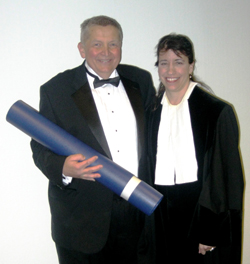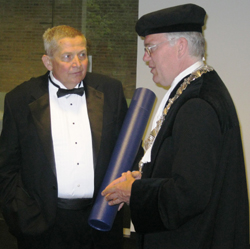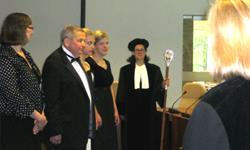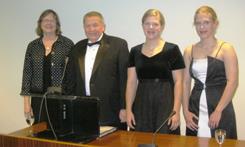Samuel Mahaffy, MA
DISSERTATION TITLE:
Relational Presence: The Spatiality of Breakthrough Decision Making Through a Relational Constructionist Lens
Summary:
This inquiry initiates a “comparative constructionist analysis” (Gergen, 1994, p. 138) of decision making through a transdisciplinary lens. It explores the relational construct we identify as breakthrough decision making, focusing on its spatiality. It investigates the design component of Appreciative Inquiry (AI) seeking a big picture, multi-lens description of the architecture (spatiality) of the situation of breakthrough decision making. It does so by mapping out individual, social, organizational, linguistic, and discursive dimensions of the space and relationships among these dimensions. In so doing, the research aims to support the potential to develop new designs for change processes that are anticipatory instead of learning through trial and error (Cooperrider, 2012).
The inquiry focuses on three primary research questions: 1) What is the spatiality (design and architecture) of breakthrough decision making? 2) What are the relational constructs that shape and create breakthrough decision making? 3) How does softening “the boundaries of separation” (Gergen, 2009 p. 354) between the sacred and the secular deepen our understanding of the spatiality and relational constructs of breakthrough decision making?
This inquiry discovers twelve essential aspects of relational presence as the core construct of the spatiality of breakthrough decision making. It challenges researchers and practitioners of decision making to move beyond subject-object dualism and efforts to simply de-center the subject. While deeply grounded in the relational constructionist approach, this inquiry finds that breakthrough decision making may involve more than simply relational coordination. The construct of relational presence, which emerges from the findings and the hermeneutic, is sharply distinguished from consensus decision making models.
This inquiry invites consideration of whether the positive life giving core that AI seeks as a destination, might be not only a space that we reach from time-to-time through an AI process, but might be a dwelling place which we inhabit as our human engagements and decision making processes reach beyond active listening to relational listening, and beyond consensus to relational presence. In short, this inquiry seeks to deepen our understanding of what it means, in decision making processes, to be relational beings beyond self and community (Gergen, 2009).




